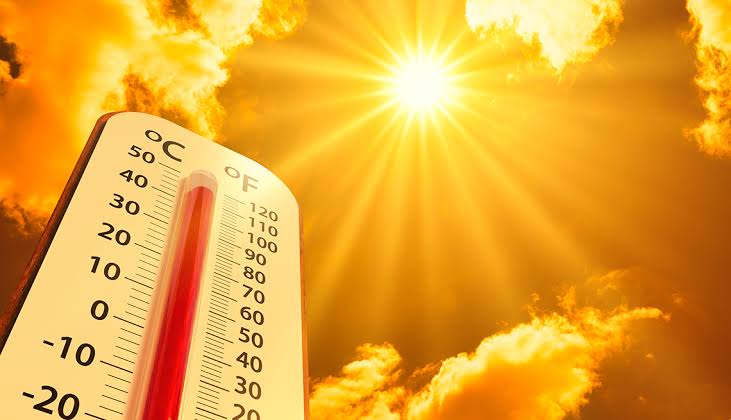Recent data from the Met Office reveals that the UK is seeing more days with temperatures soaring above 30°C, despite this summer’s uncharacteristically wet and dreary conditions. New research shows that the number of “very hot” days has tripled over recent decades, reflecting a broader trend of increasing warmth across the country.
Although this summer has been disappointing for many, with washed-out BBQs and chilly spells, the UK’s climate continues to shift toward hotter, wetter, and sunnier conditions. According to the Met Office’s annual review, the frequency of “hot” days, defined as those reaching 28°C or more, has doubled in the past decade compared to averages from 1961 to 1990. The occurrence of “very hot” days, reaching 30°C or higher, has tripled.
This week, global temperatures reached unprecedented levels, breaking records two days in a row. The UK is not only experiencing more heat but also an increase in extreme rainfall. The number of days with exceptionally high rainfall has risen by 20% in the last decade compared to the earlier period.
The country is still reeling from its 18 wettest months on record, which have caused significant difficulties for farmers and disrupted travel. Prof. Liz Bentley, chief executive of the Royal Meteorological Society, emphasized the profound effects of these extreme weather events. “The increased frequency of heatwaves and floods has a significant impact on communities, straining healthcare systems, damaging infrastructure, and disrupting daily life,” she said. She also noted an increase in deaths related to heat, floods, and storms.
Historically, only London and Hampshire in the southeast of England experienced six or more days a year with temperatures above 28°C between 1961 and 1990. However, over the past decade, such hot days have become more common across England and Wales.
Despite the chilly and damp summer this year, Prof. Bentley noted that this anomaly is due to a variation in the jet stream and does not reflect future climate trends. The Met Office’s Mike Kendon highlighted that the UK’s weather will continue to fluctuate, with some months and seasons being warmer or colder than average. However, there is a clear trend of increasing extremes. “We are seeing more extreme months than in the past,” he said. “On average, one in four months and one in three seasons are now among the top ten warmest, while the top ten coldest months have almost disappeared.”
Looking ahead, Mr. Kendon noted that even without additional warming, the UK is likely to experience significantly higher average temperatures in coming years. “We could see years that are much warmer than 2022 or 2023,” he added.
In response to these changes, the UK government faces pressure to enhance its climate adaptation strategies. Prof. Bentley stressed the urgent need to cut emissions and improve measures to protect citizens, infrastructure, and ecosystems. This week, climate campaigners have taken legal action against the government, arguing that its current adaptation plan is insufficient. The new Labour administration is defending the strategy, despite criticism from climate advisers who have labeled it “unambitious.”
A government spokesperson declined to comment on the court case but affirmed its commitment to addressing the climate crisis. The spokesperson highlighted efforts to make Britain a “clean energy superpower,” accelerate progress toward net zero, and enhance resilience through improved infrastructure, flood protection, a robust food supply chain, and extensive tree planting.











